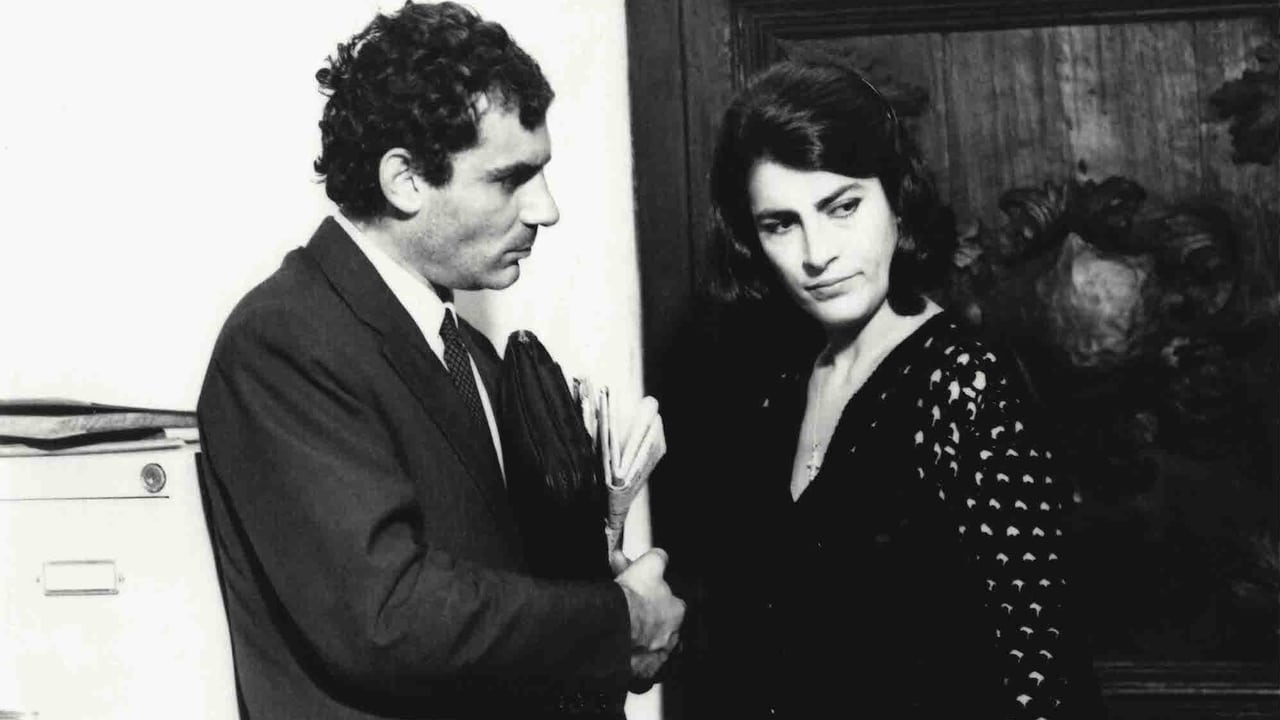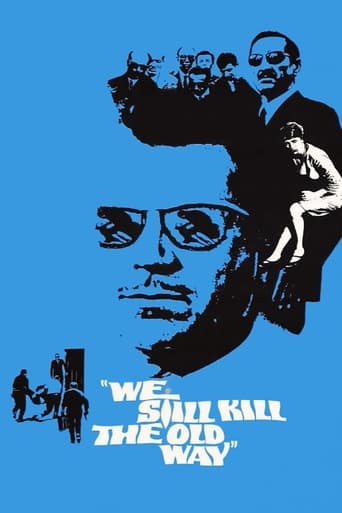Kidskycom
It's funny watching the elements come together in this complicated scam. On one hand, the set-up isn't quite as complex as it seems, but there's an easy sense of fun in every exchange.
ChanFamous
I wanted to like it more than I actually did... But much of the humor totally escaped me and I walked out only mildly impressed.
AshUnow
This is a small, humorous movie in some ways, but it has a huge heart. What a nice experience.
Lachlan Coulson
This is a gorgeous movie made by a gorgeous spirit.
PimpinAinttEasy
A tragicomic murder mystery set in Sicily with a stellar cast - Volante, Irene Papas and Gabriele Ferzetti.A womanizing pharmacist receives a death threat in a letter full of alphabets cut out from a newspaper. Soon, the pharmacist and a professor friend are murdered while on a hunting trip. The brothers of one of the pharmacist's lovers is blamed for what everyone believes to be a honor killing.But their friend, a bumbling leftist professor (played by Volante) thinks there is more to the murders and embarks on an investigation. He becomes suspicious because the letter contained alphabets cut out of an obscure and little read catholic newspaper that the illiterate peasant brothers of the girl could not have subscribed to. After he embarks on his own investigation, the leftist professor falls in love with the beautiful femme fatale Irene Pappas who plays the wife of the murdered professor.The guilty parties are revealed at the beginning of the film itself but Volante's character seems to be completely oblivious. I heard a podcast which suggests that the film is critical of the gullibility and intellectual posturing of the Italian left. Volante's character is representative of the left - he is the only person who does not seem to know what is going on in a society that seems to be complicit in the murders.The film is nice to look at. The heat and dust of Sicily really comes through in the visuals.A great Luis Bacalov score is used to great effect especially during the aerial shots of Sicily. It is a melancholic tune but there are playful versions of the score too.The appreciation of a film like this requires some understanding of the political context about which I was completely oblivious. It is not a Hitchcockian murder mystery if that is what you're looking for. I watched it because I am a fan of Volante and Petri.(7/10)
christopher-underwood
This is a good, solid, beautifully photographed crime thriller. My misfortune was to pick this film to watch the night after watching, Illustrious Corpses. Now that Italian political crime thriller made in 1976 and based upon a book by Leonardo Sciascia is a near faultless classic with deep undertones and a broad scope that is simply a joy to watch. This, it turns out, is another film based upon another book by Leonardo Sciascia from 1967. How much more sensible it would have been to watch this one first. The thing is there is nothing wrong with this film except it is also about too easily explained killings that the lead character sets out to investigate and in the process overturns a hornets' nest, but there is much less action, intrigue and politics. Gian Maria Velonte is excellent as the professor who takes it upon himself to get involved when most people seem not to care. Interestingly this was the film that helped to lift this actor into more 'serious' films, after having made many spaghetti westerns, one of the last being face to Face also from 1967 when he also played a professor.
MARIO GAUCI
Goodish blend of Mafia movie (still pretty much uncharted territory at the time) and political thriller, with a hesitant romance thrown in for good measure; the result is generally absorbing, thanks largely to uniformly excellent performances, gleaming location photography (Sicily, of course) and a wonderful score by the ever-reliable Luis Enrique Bacalov. Heading the cast is Gian Maria Volonte': the film launched the political/social conscience phase of his career after a stint doing Spaghetti Westerns. His character is that of an intellectual loner who finds himself in over his head when he starts probing into the assassination of two friends – including philanderer Luigi Pistilli – which leads to his falling for the other's wife (Irene Papas). Though the identity of the villain (as ever, an eminent member of the community and far closer to the hero than he envisaged) comes as no real surprise, the investigation – involving, among other things, the hushed participation of cleric and senator alike – and the disquieting revelations that emerge from it, lends the whole a deeply cynical tone (culminating in the downbeat climax depicting Volonte''s own extreme fate) while cementing the Mafia's reputation as strictly a 'family business'. The Italian DVD includes an interesting half-hour featurette detailing the making and reception of the award-winning film (including the fact that the author of the source novel, Leonardo Sciascia, was dissatisfied with how the script turned out); the interviewees are co-scriptwriter Ugo Pirro, the wife of the late Elio Petri, and composer Bacalov (who is regretful that, given his felicitous working relationship with the director here, the opportunity never arose for another collaboration).
Giuseppe Lippi
Although drawn from a powerful novel by Leonardo Sciascia, this results in an oversimplified, well-meaning social mystery set in 1965 Sicily, where two men are killed during a hunting party. A leftist professor (Gian Maria Volonté, a much better actor in the later Petri offering "Indagine su un cittadino al di sopra di ogni sospetto") decides to investigate the murders, only to find himself entangled in a spiderweb of corrupt politicians, "mafiosi" killers and sinister Church connections: the anonymous letters received by the victims - and, in due time, by the professor himself - were made with clippings from the Vatican newspaper "L'Osservatore Romano". There is also a fascinating dark lady character, a victim's widow, played by the splendid Irene Papas, whose black-stockinged legs wink through the whole film to the shy, undecided professor. When he resolves to take the woman, in a love scene near the end of the movie, it is unfortunately too late... The film can still be seen with some fun, but it's far from a serious rendition of the novel and it's not perhaps among the best Mafia movies made in Italy at the time. It's curious to note how so-called "spaghetti westerns", for instance, were often much more effective in describing corrupt politicians and Mafia-governed southern towns than their "mainstream" counterpart, like this typically engagé movie. I found also irritating the use of Cinemascope combined with low angles, continuous camera movements and extremely close shots, so that the narrative pace is fragmented and, more often than not, disturbed.

